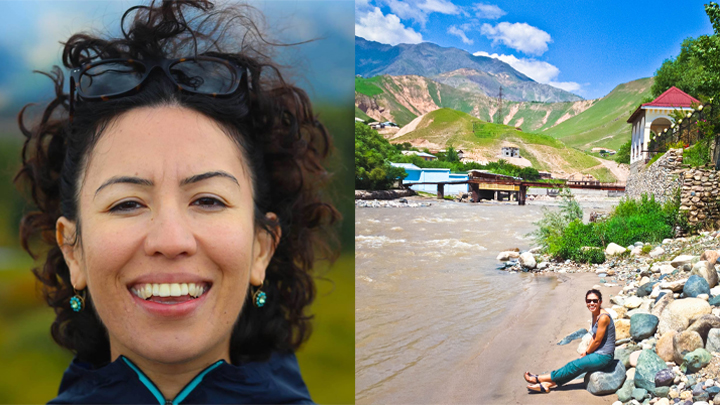Zamira Abman Receives ACLS Fellowship for Research on Effects of Soviet Delimitation
The $60K award from the American Council of Learned Societies will allow Abman to complete important research in Northern Tajikistan

To understand the present is to understand the past of Tajikistan, Kyrgyzstan, Uzbekistan, Turkmenistan, and Kazakhstan.
There is little research that comes from that part of the world due to limited access to the region. “In fact, if you're not a local, it is challenging to research that area because oftentimes three to four languages are spoken: Tajik, Uzbek, Kyrgyz, and Russian,” Zamira Abman, assistant professor of history and comparative and international studies said.
Abman is one of the 60 early-career scholars, selected from a pool of 1,100 applicants, to receive a total of $3.6 million in grant funding from the American Council of Learned Societies
(ACLS), a 100-year-old organization supporting scholars who are poised to make original and significant contributions to knowledge in any field of the humanities or social sciences.
With the ACLS Fellowship Program award, Abman will conduct archival research and oral history interviews for her project titled, “The inevitable conflict: the Soviet delimitation of Central Asia, a case study of northern Tajikistan.”
Since Abman grew up in Tajikistan and attended university in Kyrgyzstan (crossing the borders on a regular basis), she has first-hand knowledge and experience working within these territories and communities.
Abman has previously done archival research on the area of Tajikistan and authored the book, “Coerced Liberation: Muslim Women in Soviet Tajikistan,” however more needs to be done to extrapolate key historical documents about the area in order to understand how the political, social, and environmental landscape has changed in the past 75 years.
“This fellowship recognizes the reason why there is so little research in the area — because it's such hard terrain to get into. It's really hard to speak all the languages. It's really hard to navigate the many cultural nuances,” she said. Most of the state archives remain inaccessible.
Abman’s goal is to shed more light about recent history to give people an opportunity to talk about what is going on now in these countries.
“Lives have been dramatically transformed because of this conflict, and no one was on the ground asking them what happened,” Abman said. “Why did they attack a neighbor?”
This project will give people an opportunity to tell their own histories, which is why the oral history component of the research is critical.
The project traces how these borders were charted, and how the water sharing agreements were made. Abman hopes to discover how the border was drawn to see the history of how it has evolved.
She will include oral histories of the population who went through the collapse of the Soviet Union and learn how their lives were affected. As this population ages, their histories, and their memories might be lost, so gathering their perspectives now is crucial.
This ACLS-funded project provides an opportunity to take a look at conflict that is driven by climate change. In the mostly agrarian society Abman is researching, water is of the utmost importance in the ability to maintain crops — and livelihoods. Water is scarce now, due to a reduction in snowfall or rainfall in the region.
“Disruption based on this complex situation has not been studied and the borders have not been evaluated but also awareness toward the fact that this might actually only get worse, due to climate change is something that I feel very passionate about,” Abman said.
The fellowship allows Abman to work in Tajikistan, Kyrgyzstan, Uzbekistan, and Russia for 8-10 months, beginning in spring 2025.
